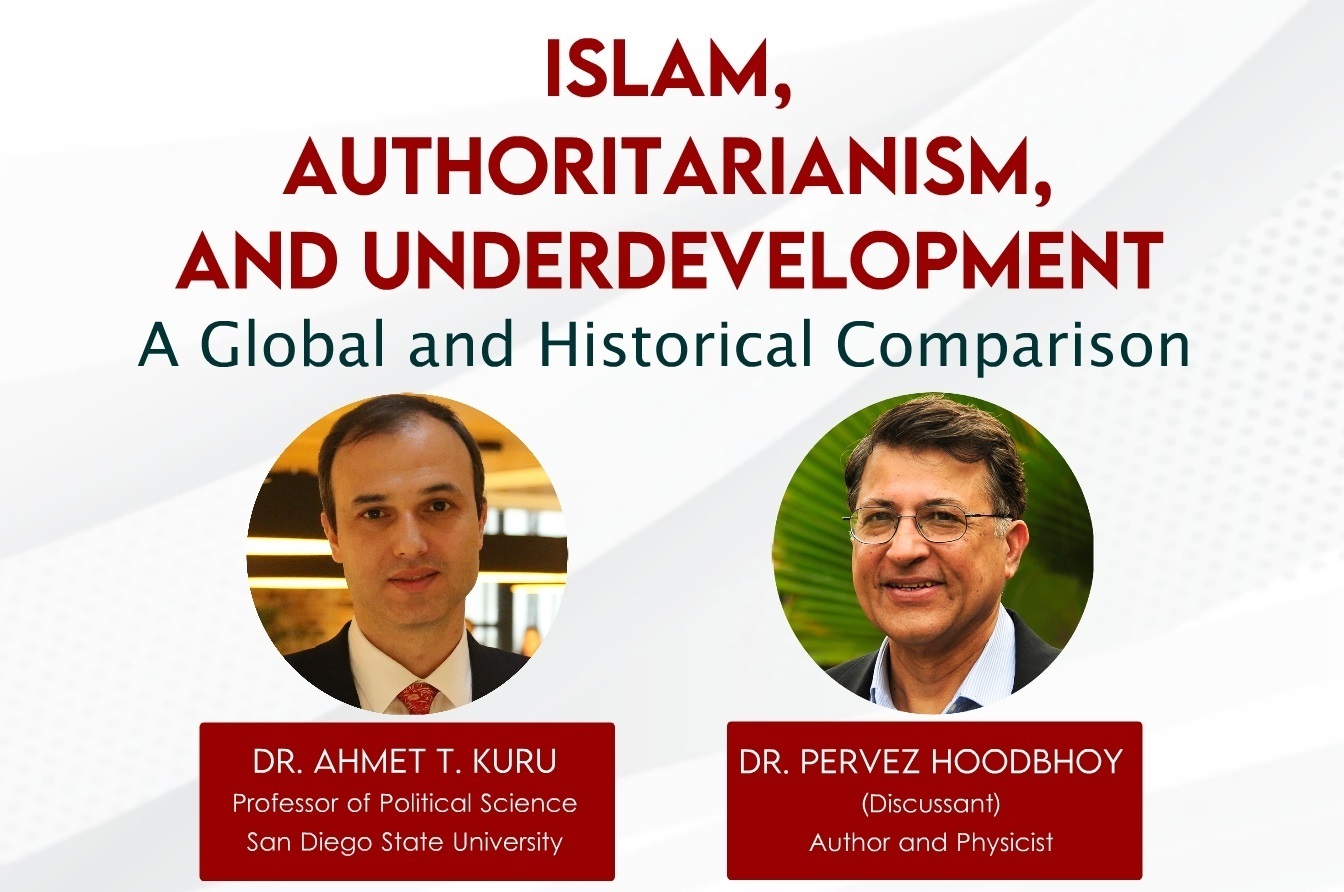
Islam, Authoritarianism, and Underdevelopment: A Global and Historical Comparison
In this session, Ahmet Kuru will elaborate an argument about the ulema-state alliance as the cause of authoritarianism and underdevelopment in the Muslim world from the eleventh century to the present. Criticizing essentialist, post-colonialist, and new institutionalist explanations, Kuru focuses on the relations between intellectual, economic, religious, and political classes in his analysis.
This session will be moderated by Dr. Pervez Hoodbhoy.
About the Speaker:
Ahmet T. Kuru (PhD, University of Washington) is the director of Center for Islamic and Arabic Studies and past Bruce E. Porteous Professor of Political Science at San Diego State University. He was a postdoctoral scholar at Columbia University. Kuru is the author of Secularism and State Policies toward Religion: The United States, France, and Turkey (Cambridge University Press, 2009), which received Society for the Scientific Study of Religion (SSSR)’s Book Award. He is also the co-editor (with Alfred Stepan) of Democracy, Islam, and Secularism in Turkey (Columbia University Press, 2012). Kuru’s articles appeared in various journals including World Politics, Comparative Politics, and Political Science Quarterly. His recent book, Islam, Authoritarianism, and Underdevelopment: A Global and Historical Comparison (Cambridge University Press, 2019) co-won the American Political Science Association’s International History and Politics Section Award, received honorable mention of SSSR’s Award, and was included in Times Literary Supplement’s Books of the Year. Kuru’s works have been translated into Arabic, Bosnian, Chinese, French, Indonesian, Malay, Persian, and Turkish.